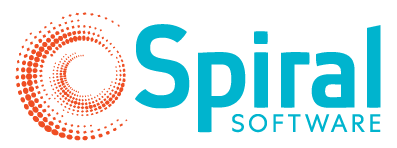Covid-19, the world’s most complex clinical trial, and the small New Zealand company who made it possible
When Covid-19 hit, clinical trial researchers had already been preparing for the next pandemic. They weren’t ready.
But a small software company in New Zealand, Spiral, helped them to create a ground-breaking clinical trial in unprecedented timeframes. One that had a real, human benefit for COVID-19 sufferers around the world.
The truth about traditional clinical trial design, and why it has failed during past pandemics.
To understand why this trial is so unprecedented, it pays to know how clinical trials have been run in the past.
Traditionally, there has been no guaranteed benefit in terms of treatment for patients who sign up to participate in a clinical trial. Their motivation is usually based around goodwill, and the hopes that they will be one of the patients to receive treatment that helps.
“The very real cost of COVID-19 is death. Everyone involved in the trial was very aware of the human element,” says Colin McArthur, a doctor and clinical researcher who plays a key part in the study.
Colin and his colleague Steve Webb had been working on designing a new kind of clinical trial for years. They had seen pandemics such as SARs or swine flu come and go so fast that clinical trials couldn’t be set up in time to identify treatments and alter outcomes for patients in terms of recovery and mortality. Their vision was for a trial that could manage multiple mini trials – known as domains – at once. Patients would be assigned to domain treatments based on the accruing results from prior patients, and that meant a higher probability of receiving more effective treatment.
“We didn’t fully understand the complexity when we started,” says Steve. “But Spiral has been an amazing partner in solving many of the challenges that arose.”
Creating a ground-breaking adaptive trial with real human benefits – fast.
Making this possible is Spiral, a New Zealand company focused on the design of software platforms for clinical trials. With unprecedented speed, they scaled up their platform so that it could handle multiple domains, provide data for continuous analysis, and ensure patients were getting treatments based on those results.
To give some context to just how fast Spiral and the research team had to move, prior to Covid-19, it had taken Colin and Steve over a year to get just one domain up and running, on top of the three they already had. In the past 11 months, Spiral has helped them to add eight new domains, expanding the scope and capabilities to counteract a disease that is complex, fast-moving and has stayed one step ahead of medical professionals and researchers. They are now working with doctors across 15 countries and more than 260 hospitals around the world.
“This is the probably the most complicated trial in the world,” says Colin.
Spiral’s ground-breaking platform is not only unprecedented because of its ability to take into account multiple patient attributes and assign treatments for patients around the world. It uses adaptive randomisation and intelligent data analysis to assess patients and assign them to combinations of treatments – instantaneously.
If it doesn’t work for doctors, it won’t work for patients.
To give this a human grounding – Spiral’s platform meant that harried doctors and research coordinators could spend less than five minutes inputting patient details, and be given a treatment combination that – although randomised – was more likely to be the best treatment out of a wide range of potential options.
“We are clinicians on the front line, not just researchers.” In fact, Colin estimates that 90% of the leadership in the trial, worldwide, are doctors on the front line, who are dealing with the impact of a global pandemic and seeing how it affects real people and their families.
“As a clinician I like to see patients in trials, because it means patients in the future will get more benefits .”
Colin also acknowledges what a huge project it has been in terms of worldwide participation and coordination.
“The medical world has really stepped up in terms of collaboration, because we can work faster when we work together. We’ve now got the system where we can simultaneously evaluate multiple alternative treatments,” says Colin.
“We want to be as prepared as possible for the future,” Steve agrees.
Both Steve and Colin are still working on the project; determined to be ready for the next time a clinical trial like this is needed.

